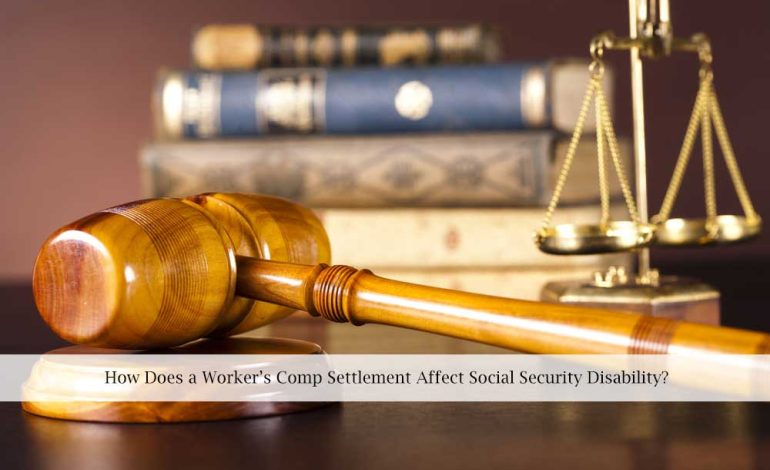What Happens After A Deposition In A Personal Injury Case?
If you want to know what to expect at the trial of a personal injury case, asking someone who was injured in a car accident may help much. Rarely do plaintiffs, the parties asking a court to award damages against defendants or at-fault parties, have their cases end with a trial.
Most personal injury claims get resolved through a negotiated settlement, but your personal injury lawyer at The Clauson Law Firm, PLLC, may have to sue the other party or parties and go through the stages of the lawsuit process in preparation for trial in case a settlement cannot be achieved.
Discovery represents an important stage in the process where the parties may demand information about the case from each other. A key component of discovery is the deposition, which is an opportunity for your lawyer and the lawyer for the defendant to have the opposing party placed under oath to answer questions about the case. Here, then, is a closer look at depositions, including what to expect before, during, and after they take place.
Stages In A Personal Injury Case
If you suffer serious injuries in a truck accident, it is unlikely that the company insuring the trucking company and the driver will write a check to settle your claim for an amount that fairly and adequately compensates you after receiving your lawyer’s demand letter. To avoid delays, your personal injury attorney will probably start a lawsuit, which forces the insurance company to move the case along. Unless it gets settled, the end result will be a trial.
The stages in a personal injury lawsuit in North Carolina generally include the following:
- Filing a complaint with the court containing the allegations of negligent behavior on the part of the defendant and how it caused the accident and your injuries. The court issues a summons, which is served along with the complaint on the defendant or defendants.
- Once served with the summons and complaint, the defendant must submit a written response or answer within a specified time. The answer represents the defendant’s response to your allegations contained in the complaint and may also include legal defenses to your claim for damages.
- Discovery begins after the defendant answers the complaint. Options available to the lawyers for the parties to acquire information from the opposition include depositions, written interrogatories, demands for production of documents, and physical or mental examinations along with other methods.
- A mediated settlement conference with an impartial mediator meeting with the parties, their attorneys, and representatives from insurance companies involved in the case in an attempt to bring the parties closer to settling the case.
The court schedules a pretrial conference for those cases that do not settle at or after the mediated settlement conference. The purpose of bringing the attorneys together with a judge for a conference before the trial is to reengage them in settlement negotiations and resolve procedural or other issues in advance of the start of a trial.
What Is A Deposition?
Depositions upon oral examination in North Carolina may be taken of any party to the lawsuit. The law also allows the use of a subpoena to compel a witness who is not a party in the lawsuit to appear and answer questions under oath at a deposition.
As the party seeking damages in a lawsuit, you can expect to be deposed by the defense lawyers for each of the defendants in the case, and your lawyer may elect to depose the defendants. The depositions are scheduled for a particular date and time and usually take place at the courthouse or the office of one of the lawyers.
A court reporter is present at a deposition to record the proceedings. It is the job of the court reporter or court stenographer to preserve the testimony and to create and present the attorneys with a transcript of it. Court reporters receive compensation for their services and for the transcript, they prepare from the attorney conducting the deposition. The transcript of testimony given by a witness at a deposition may be used later to challenge inconsistencies made by the witness in testimony given at trial.
What Types Of Questions Can You Expect?
Every attorney has his or her own style for conducting a deposition and the types of questions asked. As a general rule, as the injured party, you can expect the questioning to focus on the following:
- Questions to elicit information about yourself ranging from your date of birth and contact information to your occupation, education, marital status, and information about immediate family.
- The defense attorney can be expected to spend a considerable portion of the deposition focusing on questions about the accident, including details about what you were doing immediately before, during, and after it occurred.
- Expect to be questioned extensively about your physical condition both before and after the accident in an effort by the defense to determine whether a preexisting condition or other factors unrelated to the bus accident or other type of accident forms the basis for the lawsuit. Defense attorneys sometimes ask for a description of how your life has changed as a result of being injured in the hope of showing that the injuries you characterize as severe in the lawsuit have not had a significant impact on your life.
Prior to the deposition, your personal injury lawyer will spend time preparing for what to expect at the deposition. The general purpose of the session with your lawyer is to prepare you for the types of questions you may be asked and the procedures that are followed during a deposition to help you to remain calm on the day that you are deposed. The best advice is to listen to the questions and answer them truthfully and politely but stop speaking in the event your lawyer objects to a question. Do not continue until your lawyer tells you to do so.
Preparation And Review Of The Deposition Transcript
Depending on the type of accident and the number of parties involved in the lawsuit, depositions may be scheduled for multiple days to allow adequate time. Upon completion of a deposition, the court reporter creates an accurate, verbatim transcript of what was said at the deposition.
Transcripts must be exactly what a witness or attorney said during the deposition. Different transcripts are eventually prepared for every witness who is deposed.
To ensure that a transcript accurately reflects what a witness said at the deposition, the attorney for the deposed party and the attorney who conducted the deposition review the transcript. Your lawyer may give you a copy of it and ask you to read through it and make a note of anything that may be incorrect.
What Happens After The Completion Of Depositions?
The completion of depositions may not signal the end of the discovery stage of your personal injury case. Testimony at a deposition may cause one or more of the attorneys to submit additional discovery requests for documents and other evidence mentioned by a witness.
It is not uncommon for the completion of depositions to cause the attorneys for each of the parties to modify their positions on issues that may have stood in the way of settlement negotiations. For example, testimony that the driver of a car involved in a bicycle accident was distracted at the time of the collision may strengthen the plaintiff’s case and prompt the insurance carrier for the motorist to modify its position by offering more money to settle.
If the attorneys cannot reach a negotiated settlement on their own, the procedure in many states is for the case to be scheduled for trial. North Carolina adds a mandatory mediation conference prior to a case being scheduled for trial in an effort to settle cases.
Mediation Settlement Conference
Cases pending in North Carolina courts, including those arising from an auto accident, may be chosen by a judge for a mediated settlement. The court schedules a conference where the parties, their lawyers, and an impartial mediator meet to discuss the case and the issues preventing it from being resolved. Conferences are usually scheduled after the attorneys and their clients have learned more about the strengths and weaknesses of the plaintiff’s claim and the defenses available to the party against whom the claim has been made.
The mediator encourages discussion of disputed issues and may offer suggestions for resolving them. Unlike arbitration where an impartial person hears evidence from both parties and makes a binding decision similar to what a judge does at trial, mediators do not make decisions about a case. Mediators help the parties come to an agreement.
If a mediated settlement conference does not result in the resolution of the case, the next stage in the lawsuit process would be a pretrial conference followed shortly by a trial. Even though they did not settle their case with help from the mediator, the parties may still do so at any time including up to and during the trial.
Getting Help With A Personal Injury Case
Information obtained through a deposition frequently encourages parties in a personal injury case to rethink their positions on issues standing in the way of a plaintiff receiving fair and just compensation through a settlement. At The Clauson Law Firm, PLLC, the personal injury lawyer handling your auto accident or other types of accident claim has the knowledge, experience, and ability to use depositions effectively to get you the compensation you need and deserve. Contact us today for a free consultation.


